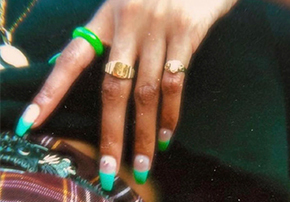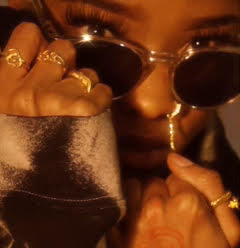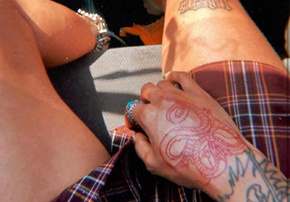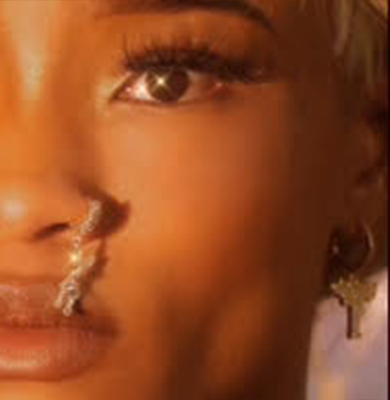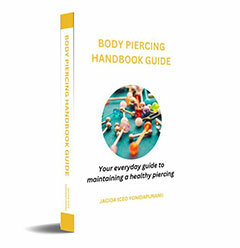Posted by YoniDa'Punani on 28th Oct 2022
What To Consider Before Getting A Piercing?

Whether it is a traditional ear piercing or something more avant-garde, getting your first piercing can be an extremely nerve-wracking experience. We completely understand how you feel since we have been there too.
It is essential to acquire as much information as possible before getting a piercing. Your desire to have piercings may be strong, but there are a few things you must think about or do first. Here are six of the most crucial considerations.
Choose a Good Piercer
You may be wondering where to find someone to do it for you. Well, you will easily be able to find several people to do it for you but make sure you choose the safest option.
Mall retailers commonly provide free ear piercings to purchase their earrings. Most of them only perform lobe piercings since they use a penetrating gun, which is not advised if you want a quick recovery. These guns are not sanitized; therefore, the only thing sterilized is the earring. Avoid infection and physical force damage by resisting the piercing gun.
Instead, you should visit a store that takes the required precautions and familiarize yourself with the equipment. Choose a salon that knows what it's doing. A trained piercer will be familiar with thin needles or hand-pressured piercing devices.
If you enter a store and they do not disinfect the jewelry and instruments, or if they attempt to pierce you without gloves, you should immediately leave.
Pre-Piercing Prep
Keep in mind that your body works in a machine-integrated and coordinated manner. Concentrate on improving your health to get the most out of your piercing.
- Sleep well the night before
- Eat a healthy meal or snack before showing up for your piercing
- Cut back on your consumption of drugs or alcohol
- Keep yourself hydrated
- Unwind and chill out
This will make it easier for you to endure the discomfort and continue for longer. In addition, before the beginning of your session, you should ensure that you have selected the type of jewelry you prefer.
Pain and Soreness
After getting their bodies pierced, some of your pals may have had horrible experiences that led to bleeding, infection, and other horrifying stories, and some may have told you that it didn't hurt at all.
Remember that their body is distinct from yours, meaning the pain they feel will be different from the agony you feel. The experience of pain is subjective and can be very different for other people.
The discomfort will not last long, but you may suffer mild soreness and redness afterward. Rest and engage in other activities without applying any pressure to the piercing. If the swelling lasts over a couple of days, you will need to get medical attention because there is a possibility of an infection.
Post-Piercing Care
After getting a piercing, aftercare must be handled very carefully as it is an integral part of the process. In this step, you should seek the assistance of your piercer and carefully follow the directions. It is strongly recommended that you keep cleaning the region for at least the next few weeks. If your doctor has prescribed an ointment, you must use it as directed.
Appropriate aftercare is an absolute must, particularly for your more difficult piercings. Since your body has to be able to heal itself, it is never a good idea to get more than three piercings.
Always wash your hands well before contacting your piercings, and stick to the aftercare solution your qualified piercer gives you. In addition, you should spin the earrings clockwise every day. If you want to avoid having the hole close up again, you shouldn't remove your piercings for more than a day after the initial 6–12 weeks healing period has passed.
Watch Out for Infection
Sometimes infections develop in piercings due to improper maintenance, such as failing to keep the piercing dry and clean. In contrast, other times, conditions appear to develop in piercings for no apparent cause. If you have an infection in your piercing, you can have a high temperature, itching, and soreness or tenderness in the area when you touch it.
You should make an appointment with a medical professional if you have any reason to believe that your piercing might be contaminated. In their expert judgment, the piercing salon may be able to tell you whether it appears infected. Still, only a physician can tell you whether or not it is contaminated and recommend the necessary treatment, which may require antibacterial ointment or painkillers.
Choose the Right Jewelry
Can you commit to keeping that stud in place for six to twelve weeks without removing it? Make sure you like the style, and inquire if the metal is hypoallergenic. Different metals are utilized for piercing jewelry. However, common allergies like nickel, chromium, and cobalt are usually included in the mix. Redness, swelling, and blistering are some of the symptoms brought on by an allergy to metal.
Several people are allergic to nickel, and because of this, you need to be aware of the metals that make the problem much worse. If metal isn't compatible with your skin, you may get a tingling feeling and redness as a result. Check to see that the option you decide to take is risk-free and won't result in any unsettling effects.
Where Can I Find the Right Jewelry for My New Piercing?
If you have made up your mind and are ready to commit to your piercing after careful consideration, your next step is choosing the right jewelry. You may now wonder where to get comfortable, fun, and safe jewelry. Here is where we can extend our help!
Let us present you to YoniDa'Punani, your one-stop store for all your body jewelry desires. We are an online jewelry boutique that is committed to assisting you in locating safe, comfortable, and fashionable jewelry. Visit https://yonidapunani.com/ now to choose your pick from the Homegirlz Closet!
